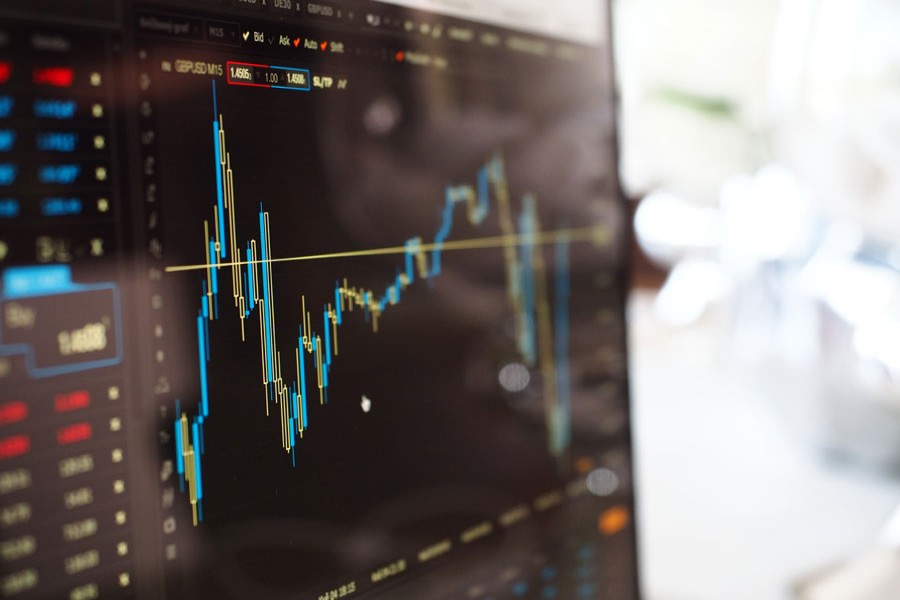Before the first case of Covid-19 was detected in the country on March 08 last, the stock market had been in a moribund state. All attempts to buoy it up failed miserably.
Trading in the bourses remained suspended between March 26 and May 30, the period declared as holiday by the government as part of the measures to contain the disease. The long holiday did hurt the economy badly. Businesses had to count losses because of the unofficial shutdown in most places. But the suspension of trading operations, apparently, saved the stock market from plunging further.
Now the market is open and its pitiable state remains beyond description. In fact, the pandemic has driven another nail in the coffin of the country's stock market.
The bourses in an unprecedented move had introduced 'floor rate' before the trading was suspended in late March. That is still in place. So, the market is now tied to an artificial level. Investors wanting to dispose of stocks below the floor rate is unable to do that.
In such a state, the indices are not allowed to plunge below a certain level. This has resulted in very low daily turnover, less than Tk. 1.0 billion.
Against this backdrop, Finance Minister AHM Mustafa Kamal on June 11 placed his budget proposals in parliament. Naturally, investors did expect some measures that would help the market recover to a certain degree.
In his budget speech, the finance minister read out a long list of measures taken so far to 'rejuvenate' the market and bring 'dynamism' into the sector. The measures include the provision to invest more funds by banks in stocks. Some weeks before the pandemic hit the country, the central bank allowed each of the scheduled banks to invest Tk.2.0 billion in the stock market. However, the banks were found not interested in investing funds in stock market because of other compulsions. So, the market continued to limp.
With the novel coronavirus triggering an unprecedented health and economic emergency, the stock market stands to lose further. In fact, the market has become more or less a non-entity now.
In the budget for the upcoming fiscal, a fresh opportunity has been offered to invest undisclosed funds in some sectors, including real estate and stock market, by paying penal tax at a nominal rate. No agency would ask any questions about the source/s of the funds to be invested under the facility.
As expected, the move has triggered criticism from different quarters. It seems, the government would stick to it till the end, but none is sure about the final outcome. In the earlier years barring 2007-08, the money whitening provision incorporated in the budget did fail to deliver the intended results.
There could be some investment of the tainted money in the real estate sector, but the same may not happen in the case of stock market under the prevailing circumstances.
In fact, the proposed budget for the next fiscal does not have anything new for the stock market. It would have mattered a little had the finance minister offered a few more incentives in the new budget.
The ongoing period is an unusual one. Most economic activities have come to a grinding halt. None expects a stock market that is already beset with many problems to be unusually active.
True, pandemic has turned the situation worse for the country's stock market. But, the reality is that even during normal time, its performance had been dismally poor.
The moot problem the market has been facing for a long time is the scarcity of investors, both short-term and long-term. A market without a decent number of investors is a dead place.
There could be a long debate why the investors have deserted the market. That will be a meaningless exercise. The relevant policymakers have tried many measures to motivate the investors to get back to the market, but they have never tried sincerely to find reasons behind the latter deserting the market.
The reality is that investors have never been in sufficient numbers in the Bangladesh market except for a couple of occasions---1996 and 2009-10. On both the occasions, there had been a surge of investors, if one likes to call them so. Investors in their thousands from all corners of the country made a mad rush to the market with an aim to become rich overnight. So, the inevitable happened---the market had crashed and most investors vanished overnight, for good. The market collapsed because the prices of most stocks, both good and bad, had reached to an unsustainable level.
Globally, the stock markets are in bad shape because of the pandemic effect, but the situation will change, maybe, after a few months. Investors will make a comeback. But, the Bangladesh market may not witness any major change. So, the relevant policymakers should try to locate reasons behind the investors' lack of interest in coming to the market and address those accordingly. The Bangladesh Securities and Exchange Commission (BSEC) has got new chairman and members. They might be really interested in getting the market back to track.


